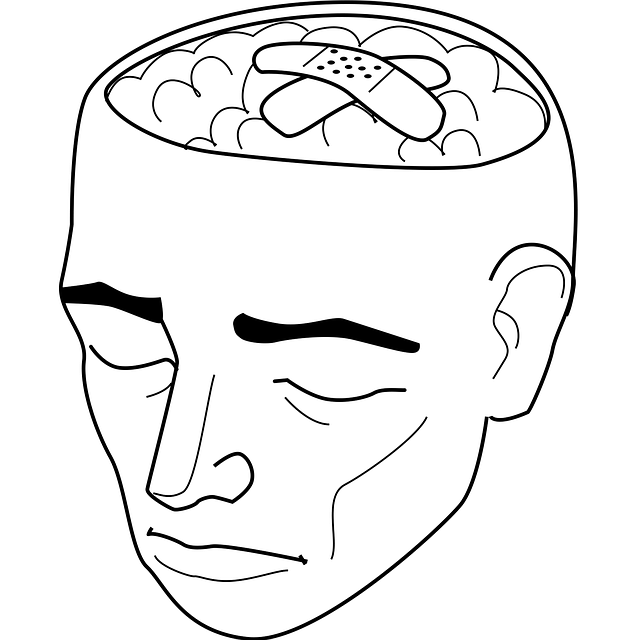Community outreach programs in Parker are transforming support for individuals with ADD/ADHD by addressing unique needs and reducing stigma. These initiatives, targeting specific communities through research and cultural sensitivity, combine emotional intelligence, mental wellness coaching, and Parker's specialized evaluations and therapy. By collaborating to create inclusive environments and measuring success through KPIs, these programs enhance academic performance, interpersonal relationships, and overall well-being for diverse populations, particularly those affected by ADHD in Parker.
Community outreach programs play a pivotal role in addressing mental health challenges, especially within diverse populations. This article explores the strategic implementation of Parker ADD-ADHD Evaluation and Therapy programs, focusing on identifying target communities, designing effective interventions, and engaging stakeholders. By understanding the unique needs of various groups, these initiatives ensure tailored support, fostering improved outcomes for individuals with ADHD. Through successful outreach strategies, the article highlights how such programs can create a ripple effect of positive change within affected communities, emphasising the importance of accessibility in healthcare.
- Understanding Community Outreach: Why Parker ADD-ADHD Evaluations Therapy Programs Matter
- Identifying Target Communities: Reaching the Right Audience for Effective Support
- Program Design and Development: Creating Tailored Interventions for Better Results
- Implementing Successful Outreach Strategies: Engaging and Educating Community Members
- Measuring Impact and Adapting: Evaluating the Effectiveness of Parker ADD-ADHD Outreach Programs
Understanding Community Outreach: Why Parker ADD-ADHD Evaluations Therapy Programs Matter

Community outreach programs play a pivotal role in addressing the unique needs of individuals with ADD-ADHD within Parker’s diverse population. Beyond traditional therapy, these initiatives focus on fostering an environment that promotes understanding and supports overall mental wellness. By integrating emotional intelligence and mind over matter principles, Parker’s ADD-ADHD evaluation therapy programs strive to empower individuals to manage their conditions effectively.
Through targeted outreach, these programs aim to break down barriers and reduce stigma associated with mental health challenges. They facilitate access to essential services, including mental wellness coaching, tailored to the specific needs of those affected by ADD-ADHD. By nurturing emotional intelligence and adopting positive mindsets, participants gain invaluable tools for navigating daily life, enhancing their academic performance, and improving interpersonal relationships.
Identifying Target Communities: Reaching the Right Audience for Effective Support

Identifying the target communities is a crucial step in implementing successful community outreach programs. When focusing on mental health support, such as Parker ADD-ADHD evaluations and therapy, it’s essential to pinpoint areas where these services are most needed. This involves researching demographic data to understand the local population’s unique challenges. For instance, some neighborhoods might have higher rates of ADHD or trauma, requiring specialized services like those offered by Parker.
By targeting specific communities, outreach programs can ensure their efforts reach the right audience. This strategic approach enables better allocation of resources and facilitates more effective support. It also fosters trust within the community, as services are tailored to address their specific needs, whether it’s enhancing confidence or providing trauma support services and stress reduction methods.
Program Design and Development: Creating Tailored Interventions for Better Results

Effective community outreach programs require thoughtful program design and development to ensure tailored interventions that yield better results. This process involves careful assessment of the specific needs and challenges within the target community, incorporating techniques like Parker ADD-ADHD evaluations to identify unique mental health concerns. By understanding these needs, organizations can develop targeted strategies that address emotional well-being promotion and facilitate emotional healing processes among community members.
Cultural sensitivity plays a crucial role in this phase, as it ensures that interventions are accessible and responsive to diverse cultural backgrounds. Incorporating practices sensitive to the mental healthcare needs of different communities fosters trust and engagement, enhancing the overall effectiveness of the outreach program. This tailored approach not only improves individual emotional health but also strengthens the social fabric by promoting inclusive and supportive environments in the community.
Implementing Successful Outreach Strategies: Engaging and Educating Community Members

Implementing successful outreach strategies is key to engaging and educating community members about mental health resources, especially when focusing on specific needs like ADD/ADHD. Parker’s evaluations and therapy services play a pivotal role in this process by providing tailored support and guidance. Through collaborative efforts, community organizations can design effective Mental Health Education Programs that foster open dialogues and dispel myths surrounding conditions like ADD/ADHD. This approach facilitates the Emotional Healing Processes by empowering individuals to understand their challenges better and seek appropriate help.
By integrating Emotional Intelligence into outreach initiatives, communities can create inclusive environments that resonate with diverse populations. Educational sessions can be formatted in engaging ways, such as interactive workshops or panel discussions, ensuring information is accessible and appealing to various learning styles. This personalized approach encourages active participation, fosters trust, and strengthens the connection between service providers and community members, ultimately enhancing the effectiveness of outreach programs.
Measuring Impact and Adapting: Evaluating the Effectiveness of Parker ADD-ADHD Outreach Programs

Measuring the impact of community outreach programs is a crucial step in ensuring their long-term success and effectiveness. In the context of Parker ADD-ADHD evaluations and therapy, it involves assessing how these initiatives positively influence individuals with Attention Deficit Hyperactivity Disorder (ADHD) and their families. One way to gauge this is by tracking key performance indicators (KPIs), such as improvements in symptoms, academic performance, and overall quality of life. These evaluations should be comprehensive, considering both the cognitive and emotional healing processes involved in therapy.
Regular assessments allow program coordinators to adapt strategies and tailor interventions based on individual needs. For instance, incorporating communication strategies and mindfulness meditation techniques can enhance traditional therapy methods. By being responsive to feedback and outcomes, outreach programs can become more inclusive and effective, fostering sustainable change for those affected by ADHD in Parker communities.
Community outreach programs, particularly those focusing on Parker ADD-ADHD evaluations and therapy, are game-changers in providing tailored support. By understanding community needs, designing effective interventions, and implementing successful strategies, these programs can significantly enhance the lives of individuals with ADHD. Measuring impact is crucial to adapt and improve, ensuring that outreach efforts remain relevant and impactful. This holistic approach fosters a vibrant and inclusive environment where everyone has the opportunity to thrive.














